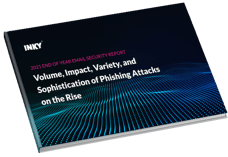Cryptocurrency seems to be making headlines on a regular basis. And while some types of crypto assets have integrated somewhat smoothly into mainstream financial markets, cryptocurrency has been the target of great scrutiny from the Federal Reserve, U.S. Treasury, Biden Administration, and even the FBI. Though all concerned parties have their own agenda, one shared and very present danger is cryptocurrency-related cybercrime.
The FBI’s Internet Crime Complaint Center (IC3) released cybercrime statistics for 2021 and one of the largest jumps was crimes involving some type of cryptocurrencies, such as Bitcoin, Ethereum, Litecoin, or Ripple. In 2021, cryptocurrency-related cybercrimes totaled more than $1.6 billion. That’s almost seven times more than what was lost the prior year.1 It’s a serious concern for the IC3 team, as they noted that “cryptocurrency is becoming the preferred payment method for all types of scams.”1
Here are a few specific types of scams involving cryptocurrency that the IC3 reported:1
Cryptocurrency ATMs: 1,500 crime reports, $28 million in losses.
The number of Automated Teller Machines (ATMs) available to purchase cryptocurrency is rapidly increasing. It’s a lucrative payment method for cybercriminals due to lenient regulations on the machines and the fact that purchases are almost instantaneous as well as irreversible.
Cryptocurrency support impersonators:
Scammers impersonating support or security personnel from cryptocurrency exchanges are alerting their victims of a phony issue with their crypto wallets. This often comes in the form of a convincing phishing email that persuades victims to either give access to their crypto wallet or transfer the contents of their wallet to another wallet in order to “safeguard” the contents. Crypto owners searching online for support with their cryptocurrencies are often met with phony support companies who steal their credentials and take control of their crypto accounts.
Cryptocurrency investment opportunities:
4,325 crime reports, $429 million in losses.
Victims in this scenario are being pressured into investment opportunities, especially using cryptocurrency, and often in the form of a romance scam. The scammer's initial contact is typically made with the help of social media. Once the scammer gains the confidence and trust of the victim, they claim to have knowledge of cryptocurrency investment or trading opportunities that will result in substantial profits.
How to Remedy the Issue of Cryptocurrency-Related Cybercrime
Cryptocurrency-related cybercrimes are devastating. You might remember when refined oil giant Colonial Pipeline paid roughly $5 million in bitcoin ransom after falling victim to a phishing attack that shut down the country’s largest fuel pipeline. Just weeks later, the world’s largest meat supplier, JBS Foods, paid $11 million in bitcoin to restore their systems after they suffered a similar ransomware attack.
So, what’s being done about Cryptocurrency?
On March 9, 2022, an Executive Order on Ensuring Responsible Development of Digital Assets was issued. The order calls for a number of safeguards to protect individuals and companies from the significant risks associated with digital assets. In the order, President Biden reiterated the fact that “Illicit actors, including the perpetrators of ransomware incidents and other cybercrime, often launder and cash out of their illicit proceeds using digital asset service providers…” All of which led to billions of dollars in losses in 2021.2
While the focus of the Executive Order shows the importance of preventing cryptocurrency-related crimes, the government can’t wave a magic wand to simply stop these crimes. The measures outlined within the Executive Order will take time to devise and implement. In the meantime, thousands of cybercrime complaints continue to be reported every day.
The best course of action for every business is to act in its own best interests. Responsible businesses must do their part to protect their own company, clients, employees, and resources from the perils of cybercrime. With so much at stake, investing in the type of technology you need to protect your company from phishing attacks becomes crucial.
INKY provides the most comprehensive malware and email phishing protection available. It scans every sent and delivered email automatically and flags malicious emails, protecting your organization and your clients from even the most complex threats. INKY’s intelligent machine learning algorithms identify abnormalities in emails, even if the threat has never been seen before. INKY injects an HTML banner with one or more of nearly 60 warning messages to educate the recipient with specifics of the threat. INKY also works on any device and can be implemented quickly, regardless of whether your employees work at the office or remotely.
Whether they’re related to cryptocurrency or not, phishing threats are a dangerous and growing problem. Explore a solution that works. Schedule an INKY demo or inquire today.
----------------------
INKY is an award-winning, behavioral email security platform that blocks threats, prevents data leaks, and coaches users to make smart decisions. Like a security coach, it signals suspicious behaviors with interactive banners that guide users to take safe action on any device or email client. IT teams don’t face the burden of filtering every email themselves or maintaining multiple systems. Through powerful technology and intuitive user engagement, INKY keeps bad actors out for good. Learn more about INKY™ or request an online demonstration today.
1Source: https://www.ic3.gov/Media/PDF/AnnualReport/2021_IC3Report.pdf



